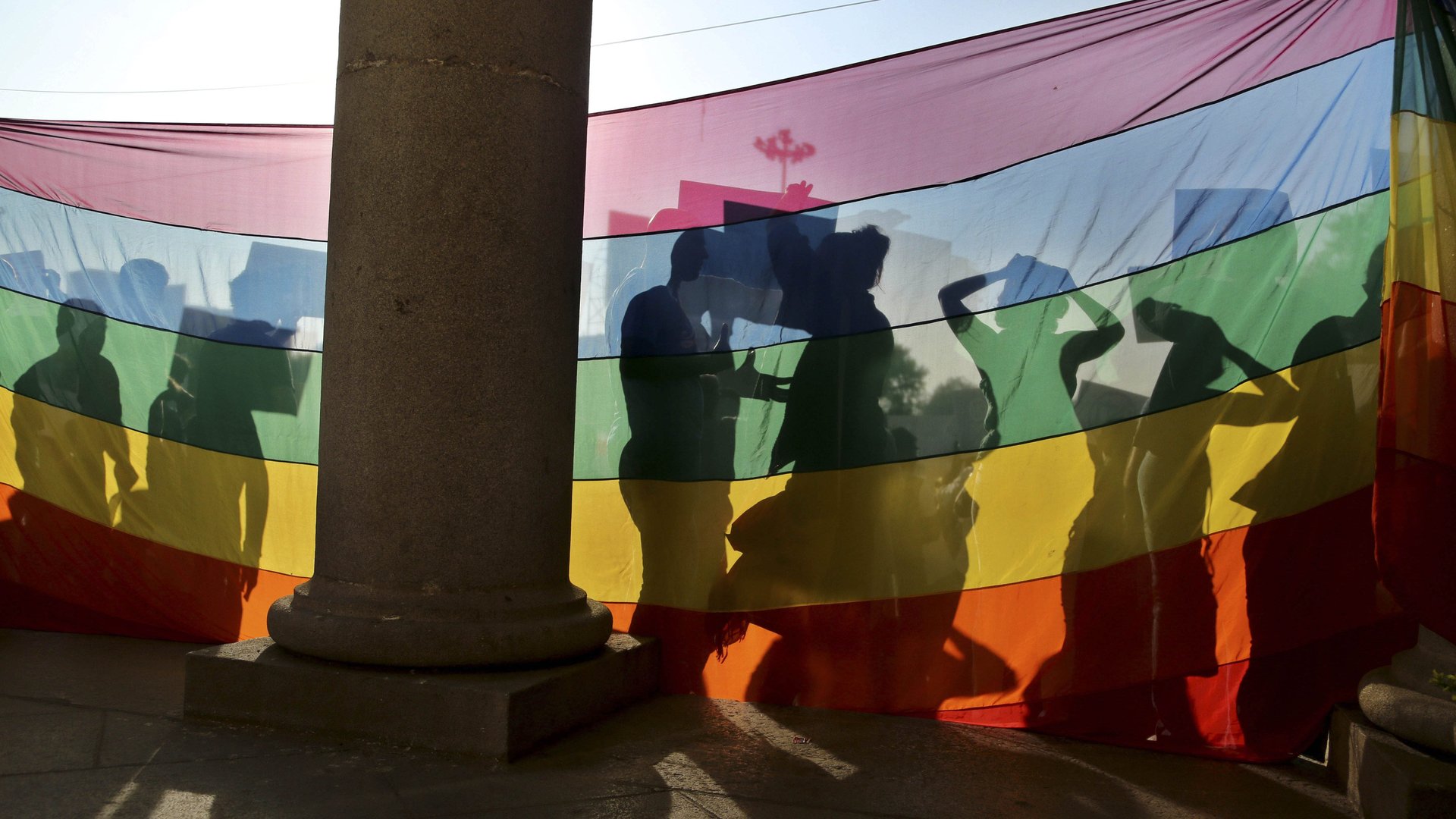South Asian honour culture hounds India and Pakistan’s LGBTQ community
Eight years after the first Indian lesbian couple got legally married in the face of death threats, LGBTQ youth continue to flee homes to escape secret honour-killing plans.


Eight years after the first Indian lesbian couple got legally married in the face of death threats, LGBTQ youth continue to flee homes to escape secret honour-killing plans.
South Asia’s honour culture is the prime culprit behind such hounding of India’s lesbian, gay, bisexual, transgender or queer (LGBTQ) community, according to new research published in the peer-reviewed, academic Journal of Interpersonal Violence. More than citizens of most other countries, Indians were likely to think that being a member of this group brought dishonour to their families. Many even approve of anti-gay abuse.
This is despite the Indian penal code’s section 377, which criminalised gay sex, being knocked down by the supreme court last year.
The study’s sample consisted of over 900 college students across India, Pakistan, Malaysia, Iran, and the UK. Participants read a brief vignette depicting a man whose relatives verbally abuse and intimidate him with life-threatening violence after suspecting that he is gay and knowing that he has joined an online dating website to meet men. They then rated this anecdote on a scale of 1-7, ranging from “strongly disagree” to “strongly agree.”
Pakistan was the only nation whose participants believed more strongly than Indians that the victim had damaged family honour.
“(T)here is a heavy sense of duty for all individuals to maintain family honour and to conform to culturally defined and collectively prescribed honor values, despite personal beliefs,” the study’s authors noted. Members within the culture are expected to ensure that norms are being observed and respected, they added.
Even in Britain, where respondents were split into white and Asian populations, there were discrepancies. “British Asian participants were more likely to endorse anti-gay values than British white respondents,” a May 22 press release by the University of Central Lancashire noted. Previous evidence had shown that many British Asians hide their sexual orientation and that forced marriages were shockingly common in their community.
This goes to show where someone resides is not the only factor influencing attitudes towards homophobic honour abuse. Gender, religious denomination, education level, marital status, and age also play a role. For instance, males endorsed this abuse more than women. As did older, religious, less educated, and married individuals compared with younger, nonreligious, more educated, and unmarried people.